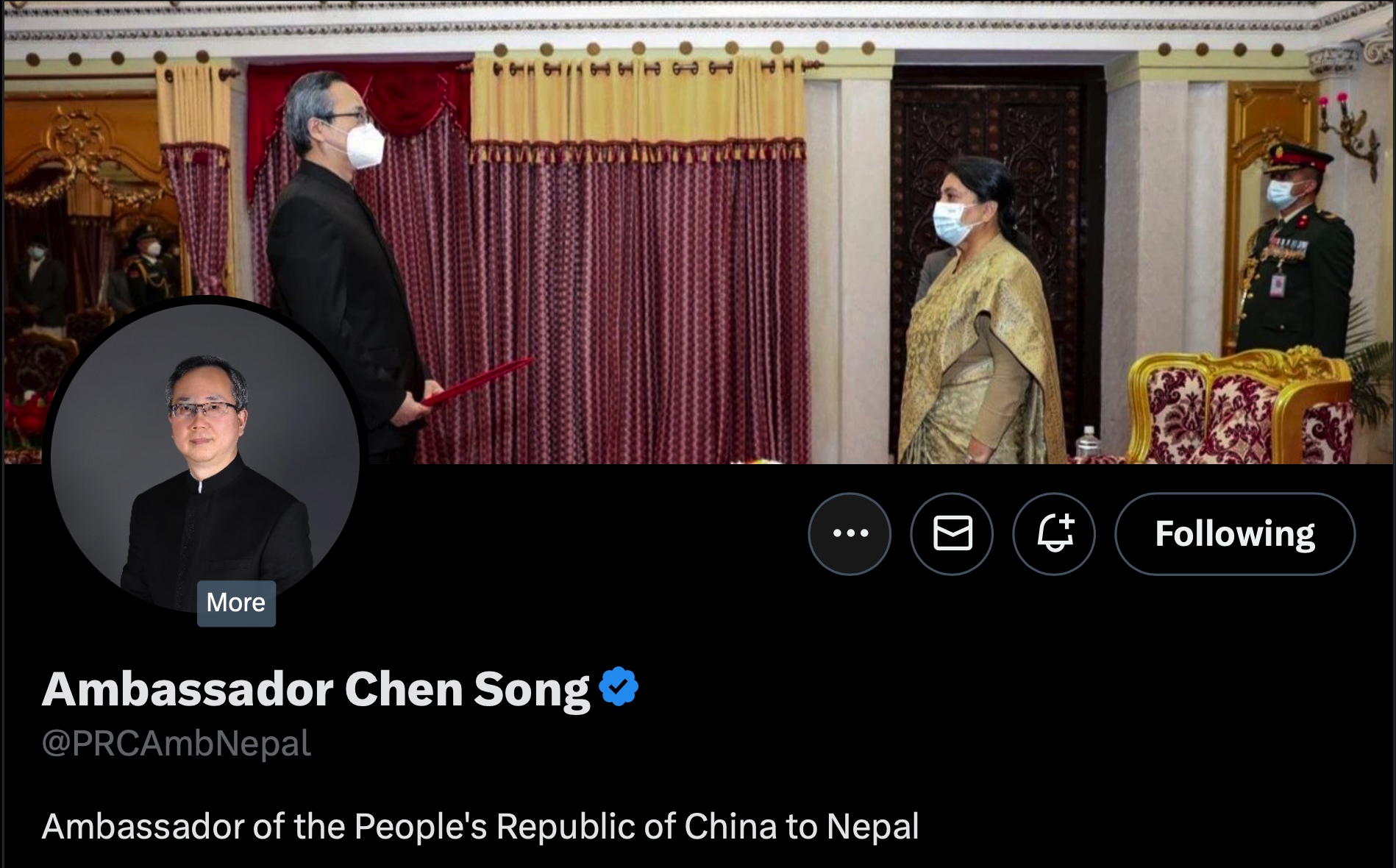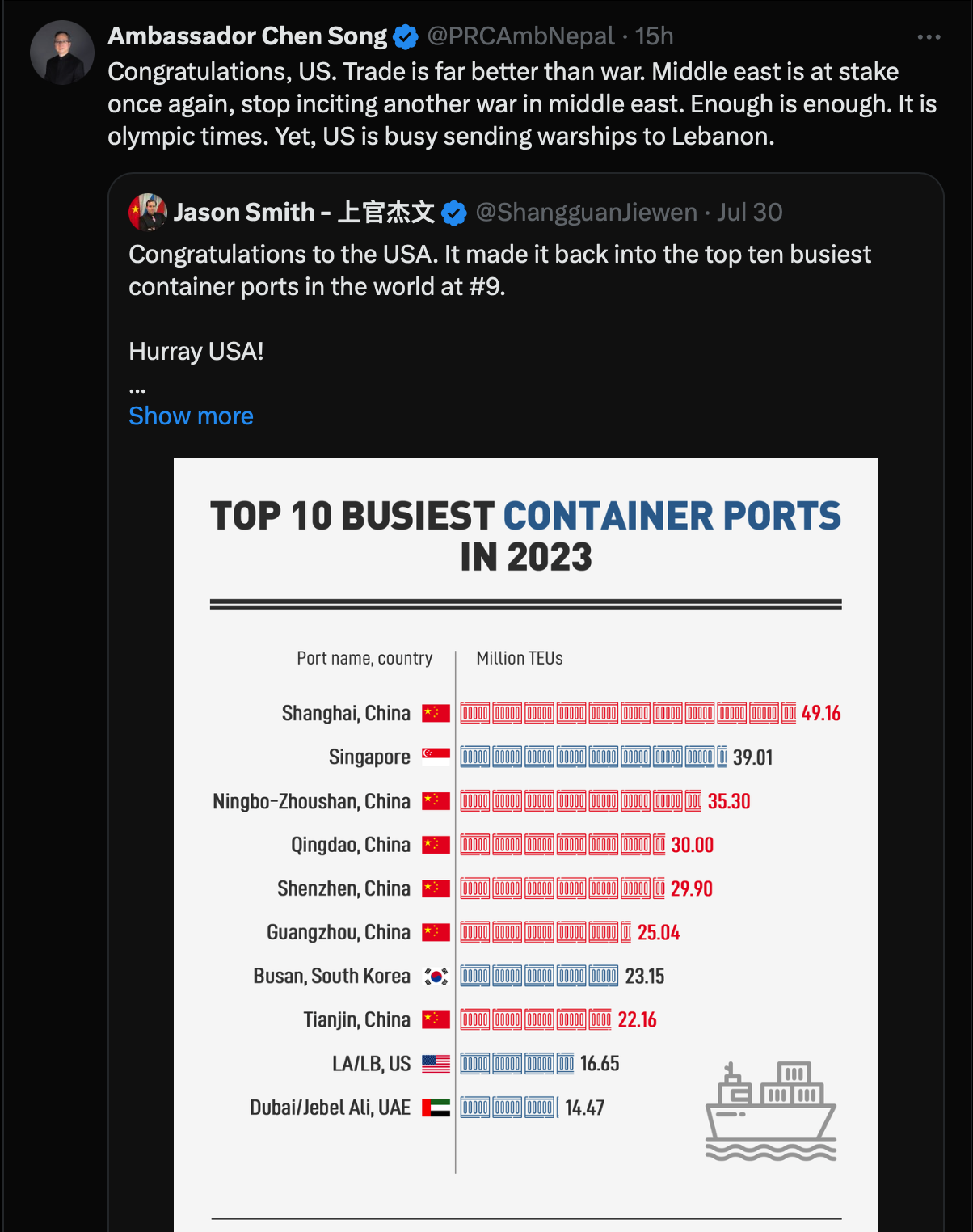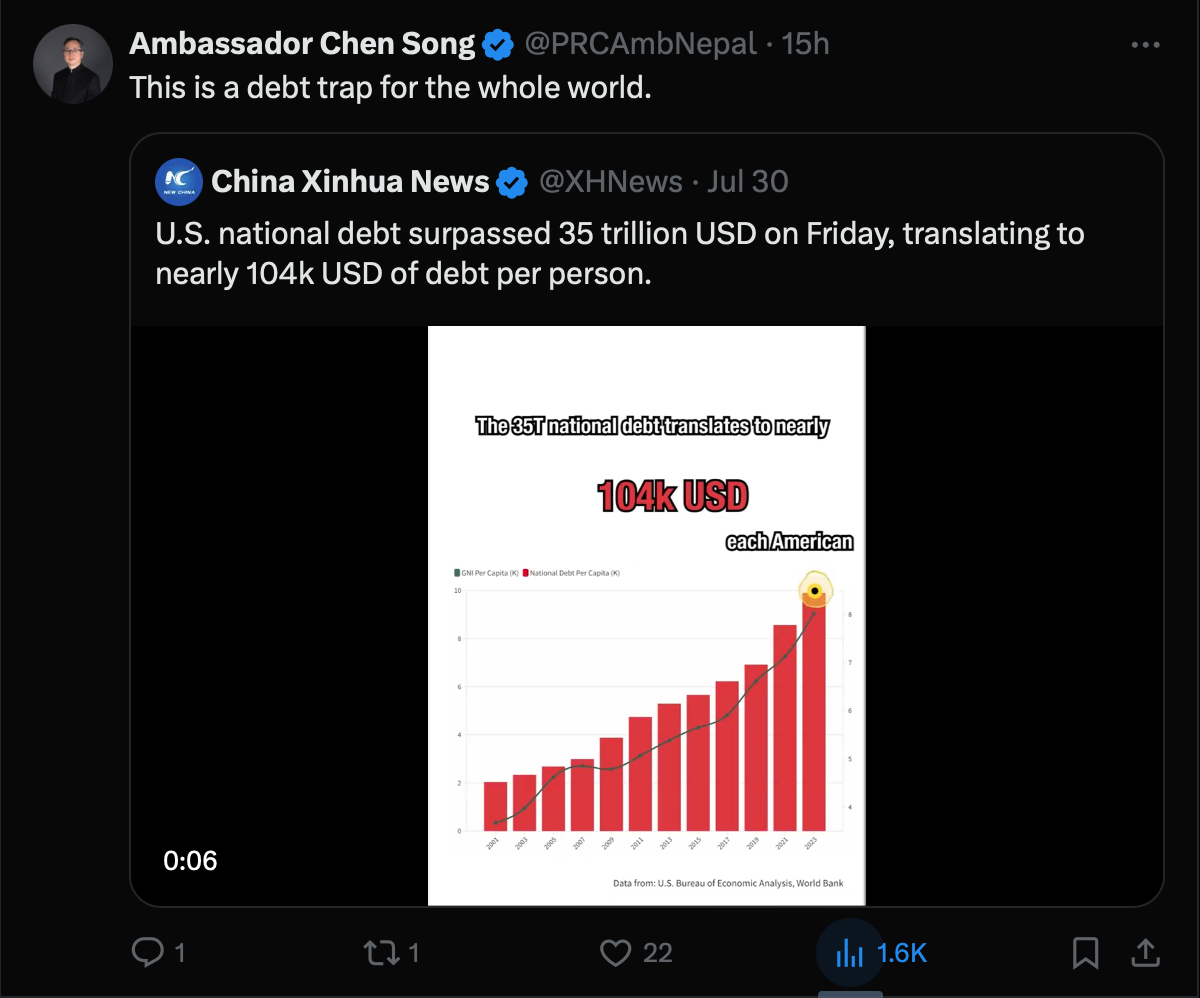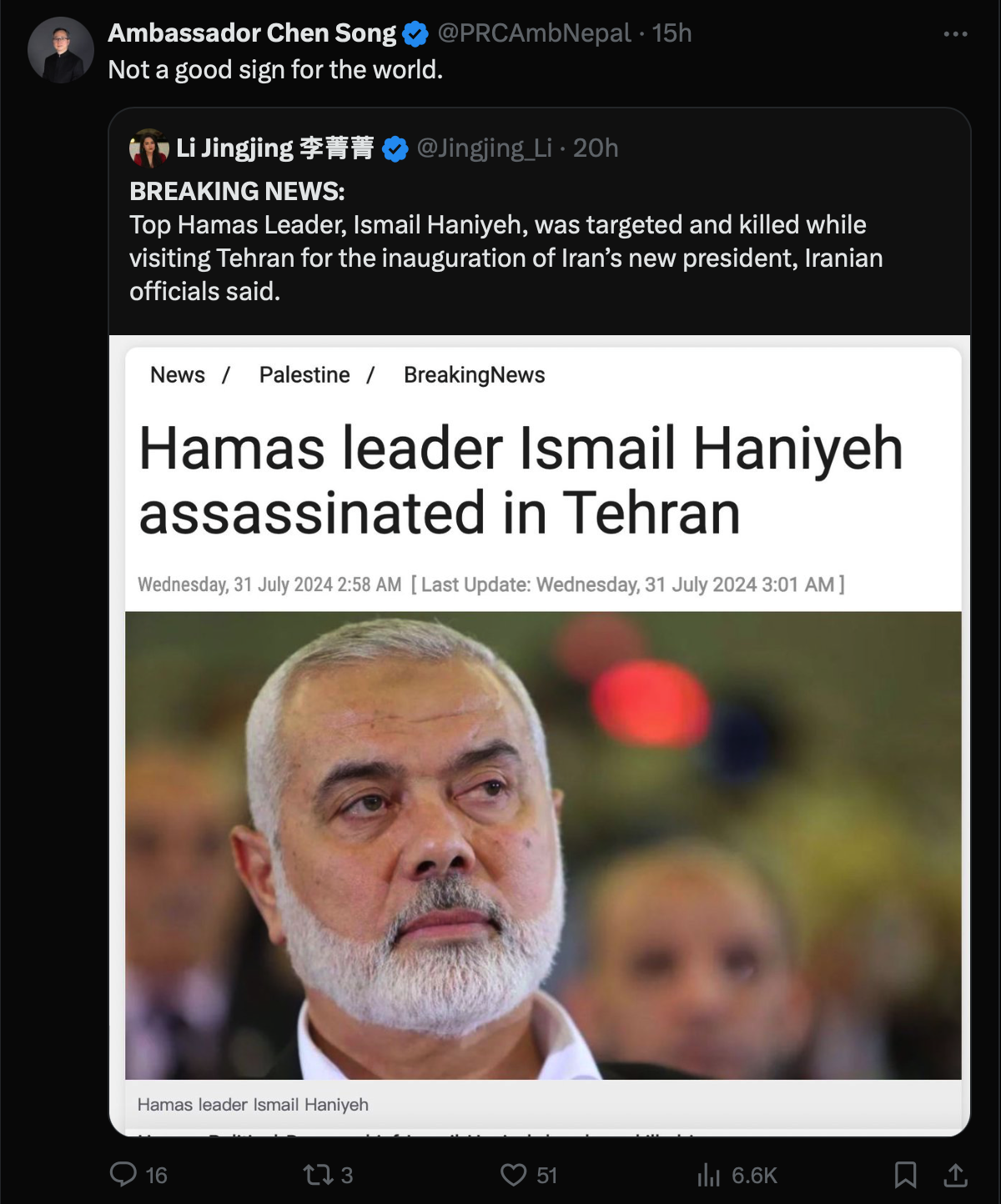Diplomatic Drama: Chinese Ambassador's Outrageous Claims Against the US and Nepal!

The Chinese Ambassador's recent activities on social media have raised eyebrows and questions about China's diplomatic strategy. In a series of tweets, the ambassador's comments have not only targeted Nepal's internal affairs but also taken aim at the United States, reflecting an aggressive stance often referred to as "wolf warrior diplomacy."
The ambassador's Twitter activity began with a provocative post directed at the United States, stating, "Congratulations, US. Trade is far better than war. The Middle East is at stake once again; stop inciting another war in the Middle East. Enough is enough. It is Olympic times. Yet, the US is busy sending warships to Lebanon." This tweet criticizes U.S. foreign policy, implying that American actions in the Middle East are destabilizing and unnecessary.

Following this, the ambassador shared a post from China Xinhua News, highlighting the U.S. national debt, which has reportedly surpassed $35 trillion, equating to nearly $104,000 of debt per person. The ambassador commented, "This is a debt trap for the whole world," suggesting that the United States' financial situation poses global economic risks.

The ambassador further engaged by reposting a Chinese journalist, Li Jingjing's, report claiming, "BREAKING NEWS: Top Hamas Leader, Ismail Haniyeh, was targeted and killed while visiting Tehran for the inauguration of Iran’s new president, Iranian officials said." The ambassador's comments on this issue underline the alleged repercussions of U.S. involvement in foreign affairs.

This kind of behavior from diplomats is increasingly being viewed as part of China's assertive diplomatic policy, known as "wolf warrior diplomacy." This approach marks a departure from traditional diplomatic norms, which typically emphasize subtlety, respect, and non-interference. Instead, it embraces a more combative and outspoken style, often involving public criticism and bold statements.
The ambassador's activities have also been perceived as interfering in Nepal's sovereignty and straining Nepal-India relations. By engaging in what some might describe as "micromanagement" of Nepal's internal politics and aligning openly against the USA, the ambassador's actions are contributing to a more complicated diplomatic landscape in the region.
A New Era of Diplomacy?
The ambassador's actions reflect a broader trend within Chinese diplomacy, where diplomats are encouraged to be more aggressive and vocal in defending China's interests and criticizing Western powers. This shift in strategy has led to mixed reactions globally, with some seeing it as a necessary stance against perceived Western hegemony, while others view it as unnecessarily provocative and harmful to international relations.
In conclusion, the Chinese ambassador's recent behavior exemplifies a significant shift in diplomatic norms, showcasing a more assertive and, at times, confrontational approach. Whether this strategy will prove effective or detrimental to China's global standing remains to be seen, but it undoubtedly marks a new chapter in international diplomacy.




![From Kathmandu to the World: How Excel Students Are Winning Big [Admission Open]](https://nepalaaja.com/img/70194/medium/excel-college-info-eng-nep-2342.jpg)
